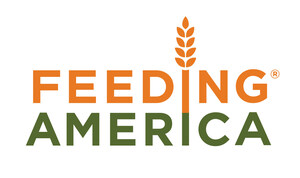1,300 State and Local Hunger-Relief Agencies Urge Congress to Protect Nutrition Programs in Farm Bill Negotiations
CHICAGO, Nov. 14, 2013 /PRNewswire-USNewswire/ -- More than 1,300 state and local hunger-relief charities sent a letter to Congress urging members to strengthen and protect hunger-relief programs in the farm bill. The letter comes as the farm bill conference committee works to reconcile the House and Senate versions of the farm bill. Specifically, the letter calls on Congress to protect the Supplemental Nutrition Assistance Program (SNAP) from funding cuts and harmful policy changes and to support at least the House funding level of $300 million for The Emergency Food Assistance Program (TEFAP).
"With three job seekers for every one job opening and all SNAP households having just received a cut to their monthly food benefits on November 1, it is inconceivable that Congress would make cuts to hunger relief, yet SNAP remains at risk of further cuts in the farm bill," said Bob Aiken, CEO of Feeding America, the nation's leading domestic hunger-relief charity.
"There is a misperception that because the unemployment rate has started to fall, the need for food assistance programs has diminished, but that is not the experience of hunger-relief charities. A visit to any food bank or a closer look at the numbers reveals just how high the need remains," Aiken said.
The number of individuals living in food insecure households increased 35 percent in the first year of the recession, from 36 million people in 2007 to 49 million people in 2008. The number of food insecure people lingered at 49 million people in 2012.
"While unemployment has fallen, food insecurity has not," Aiken said. "That's because low-income households are typically the last to recover from a recession."
While mid-wage occupations constituted 60 percent of recession losses, they account for only 22 percent of recovery growth. By contrast low-wage occupations represented 21 percent of recession job losses but have made up 58 percent of recovery growth. Low-income workers are competing with workers with higher education and skills for low-wage jobs. Unemployment among college graduates is 3.5 percent, but it remains at 11.3 percent for those with less than a high school diploma.
Food banks already are bracing for an expected increase in demand resulting from a recent benefit cut impacting all SNAP participants that was implemented on November 1.
"Cuts to SNAP in the farm bill would only increase the number of people turning to our nation's charitable food system at a time when food banks and other hunger-relief groups are stretched to the breaking point trying to meet existing need. We need more supply, not more demand. Instead of cutting SNAP, we urge Congress to increase funding for TEFAP to increase the flow of food through the charitable system," Aiken said.
The House farm bill proposal would cut nearly $40 billion from SNAP, the nation's frontline federal nutrition program. If enacted, the House proposal would cause four million individuals to lose food assistance entirely; 850,000 households to see their benefits reduced by an average $90 per month; and 210,000 children to lose free school meals. The House bill also would incentivize states to cut participants off of SNAP if they cannot find a job or a job training program – including families with children – and would cut SNAP nutrition education that promotes healthy food choices and regular physical activity.
"Food banks throughout the country are concerned that they will have fewer resources to meet demand, as TEFAP deliveries are expected to decline in 2014," Aiken added. "The additional $300 million in funding for TEFAP through the farm bill is critical to our food banks."
Hunger-relief charities are urging conference committee members to reverse course and protect SNAP from cuts. The letter also calls on Congress to support at least the House level of new investments in TEFAP commodity purchases for food banks and other feeding agencies.
The text of the letter and a list of endorsing organizations can be found here.
Contact:
Feeding America
Ross Fraser
312.641.6422
About Feeding America
Feeding America is a nationwide network of more than 200 food banks that leads the fight against hunger in the United States. Together, we provide food to more than 37 million people through 61,000 food pantries, soup kitchens, and shelters in communities across America. Feeding America also supports programs that improve food security among the people we serve; educates the public about the problem of hunger; and advocates for legislation that protects people from going hungry. Individuals, charities, businesses and government all have a role in ending hunger. Donate. Volunteer. Advocate. Educate. Together we can solve hunger. Visit http://www.feedingamerica.org/. Find us on Facebook at www.facebook.com/FeedingAmerica or follow us on Twitter at www.twitter.com/FeedingAmerica.
SOURCE Feeding America
WANT YOUR COMPANY'S NEWS FEATURED ON PRNEWSWIRE.COM?
Newsrooms &
Influencers
Digital Media
Outlets
Journalists
Opted In





Share this article